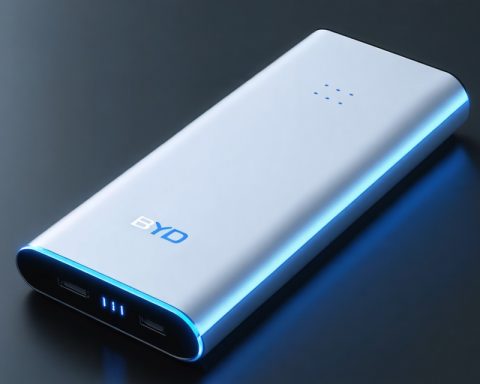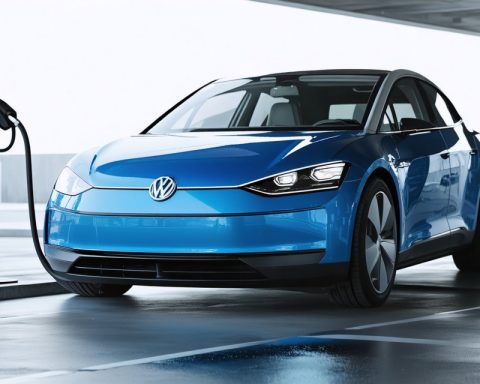- Tesla is experiencing its first decline in electric vehicle sales, with 2024 showing troubling trends.
- Elon Musk proposed a future valuation of Tesla at $15 trillion, despite current financial instability.
- Over half of Tesla’s recent net income came from volatile sources like cryptocurrency gains and EV credits.
- Many analysts are concerned that Tesla’s stock performance is not aligned with its financial fundamentals.
- Tesla’s brand reputation has taken a 9% hit, with two-thirds of car buyers not considering the company.
- Increased competition from traditional automakers and disappointing sales from the Cybertruck further challenge Tesla’s position.
- The company’s future relies heavily on its ability to deliver on ambitious promises amidst these struggles.
As Tesla navigates its rocky fourth-quarter earnings, the headlines scream surprise. For the first time since its inception, 2024 is painting a stark picture—declining electric vehicle (EV) sales. But instead of facing tough realities, Elon Musk dazzled listeners on the earnings call with extravagant dreams of self-driving taxis and humanoid robots, promising a future so bright it’s hard to fathom.
He boldly suggested that Tesla could become the world’s most valuable company, reaching a staggering $15 trillion market cap. Although investors seemed enchanted, a deeper look reveals troubling signs. A closer examination shows that over half of Tesla’s $2.3 billion net income stemmed from volatile cryptocurrency gains and EV credit sales.
Analysts are raising red flags, emphasizing that the stock’s recent performance appears “completely divorced from the fundamentals.” With the pressure mounting, questions arise:
Can Musk juggle his numerous roles—CEO of Tesla, SpaceX, and other ventures—effectively? There’s no clear leadership at Tesla while he’s distracted, contributing to a 9% reputational hit as some consumers increasingly reject the brand. With two-thirds of potential car buyers stating they won’t consider a Tesla, Musk’s vision feels increasingly fragile.
The competition is fierce, with traditional automakers stepping up their EV game and the much-hyped Cybertruck failing to meet sales expectations. As Tesla grapples with declining numbers and a tarnished reputation, the sky-high aspirations may be just that—aspirations. In an industry where reputation is everything, Tesla now faces a critical crossroads. Will grand promises and innovative dreams be enough to keep the electric road ahead bright?
Is Tesla’s Future in Jeopardy? Examining the EV Industry Landscape
As Tesla sails through increasingly tumultuous financial waters, the narrative is shifting. Initial excitement over its prospects has given way to apprehensions regarding its declining electric vehicle (EV) sales and an overreliance on unpredictable income sources.
New Insights and Industry Context
1. 2024 EV Market Trends: Analysts predict a significant 20% drop in Tesla’s EV sales in 2024 due to rising competition from traditional automakers who are ramping up their EV offerings. Brands like Ford, GM, and Volkswagen are increasingly capturing market share with aggressive pricing and improved technology.
2. Innovations in Autonomous Driving: Tesla continues to invest heavily in AI and self-driving technology. The introduction of their Full Self-Driving software updates is creating a buzz, although regulatory scrutiny remains high, especially in Europe.
3. Renewed Focus on Sustainability: Tesla is under pressure to address sustainability practices more effectively. It is being evaluated on its material sourcing and production methods, and there are growing calls for better transparency in its supply chain management.
Important Questions and Answers
1. Q: How is Tesla’s reputation affecting its sales?
A: Tesla’s brand reputation has taken a hit due to leadership distractions and concerns over vehicle safety. Polls indicate that about 66% of potential buyers are hesitant to consider Tesla, citing safety and reliability issues as key deterrents.
2. Q: Can Tesla sustain its market position amidst increasing competition?
A: While Tesla has a strong brand identity and a loyal customer base, the increasing offerings from rivals with improved features and pricing strategies pose a serious threat. Analysts suggest Tesla must innovate deeply and improve customer relations to retain its forefront position.
3. Q: What are the potential impacts of cryptocurrency on Tesla’s finances?
A: Tesla’s financial reliance on cryptocurrency gains raises red flags among investors. With crypto markets being notoriously volatile, continued reliance on these gains may lead to unsustainable financial practices that could impact the company’s long-term stability.
Additional Perspectives
– Comparative Market Analysis: Tesla needs to be wary of competitors like Rivian and Lucid, alongside traditional manufacturers that are innovating rapidly in the EV space.
– Future Predictions: Industry experts project that unless Tesla can regain consumer trust and innovate out of its current challenges, its market share could diminish significantly within the next few years.
Suggested Related Links
For more detailed insights about Tesla and the EV market, visit Tesla’s official website.












